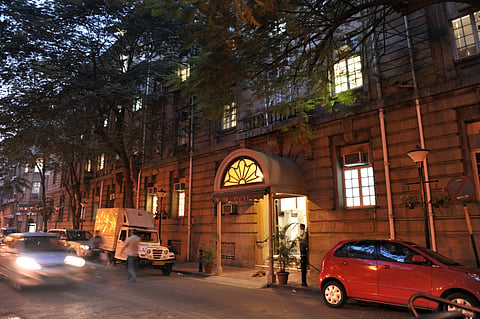Tata Trusts: From consensus to control
Tata Trusts own a majority 66 per cent stake in Tata Sons Ltd, the holding company of the Tata conglomerate. In recent weeks, Tata Sons has been at the centre of a corporate tussle that brought the family legacy and governance into sharp focus. Former Tata Trusts trustee Mehli Mistry, who was involved in a dispute with Tata Trusts Chairman Noel Tata, had two other trustees supporting him, but three other trustees, including Noel Tata, opposing him.
Some weeks ago, Mehli Mistry first opposed the reappointment of Vijay Singh to the board of Tata Sons, supported by some other trustees. Therefore, Vijay Singh resigned as a director of Tata Sons. In his place, Mehli Mistry sought to be appointed as a director of Tata Sons, supported by some other trustees – again, all relatively new appointees who wished to be appointed to the board of Tata Sons. This was opposed by Noel Tata and Venu Srinivasan, one of the older trustees. It is important to note that the two main Tata Trusts that together hold a majority of shares in Tata Sons Ltd have slightly different compositions of trustees.
Shortly thereafter, Venu Srinivasan’s reappointment as a trustee came up, to be followed shortly by Mehli Mistry’s reappointment. The Trusts unanimously reappointed Venu Srinivasan as a lifetime trustee, with the backing of Mehli Mistry. Along with trustees Pramit Jhaveri, Jehangir HC Jehangir and Darius Khambata, Mistry supported Srinivasan’s reappointment as a trustee of Tata Trusts. However, Mehli Mistry attached a key condition – that all future renewals of trustees, which would be lifetime appointments, must be approved unanimously. Yet Mehli Mistry himself had been appointed by Ratan Tata, less than 2 years before he died, for a fixed term of 3 years.
However, when it came to Mehli Mistry’s appointment, Noel Tata, Vijay Singh and Venu Srinivasan voted against it. Mehli, who could not vote as an interested party, thus had only two other trustees in each of the Trusts supporting him. Therefore, his reappointment failed, and he was compelled to exit as a trustee from both Trusts. This left Noel with majority support in both Trusts.
During Ratan Tata’s tenure, though not in JRD Tata’s tenure before that, voting was never an option within the Trusts. Decisions were traditionally reached through consensus and collective agreement – a practice now being tested amid signs of internal friction.
Clearly, there have been differences of opinion amongst the trustees, which, completely alien to the Tata ethos, have been played out publicly. But behind the differences in opinion, there have been power plays which could shape control of the Trusts for the next 25 years, and in turn impact the long-term functioning of the whole Tata group – not only the biggest group, but the most important one in the country.
The same group of newer trustees, as mentioned earlier, had a resolution passed stating that all existing trustees would, on the expiry of their terms, be reappointed as trustees for life – which, for some reason, the older trustees went along with. This would have cemented the long-term absolute control of the Trusts in the hands of the newer trustees, all of whom were significantly younger than the older trustees. Clearly, Ratan Tata would not have wanted lifetime trustees, as those appointed in his time were appointed for fixed terms. Whether Mehli Mistry goes to the courts is not clear, but the courts are most likely to reject his interpretation and claims.
Noel Tata, just in time, firmly nipped this in the bud by biting the bullet and refusing to reappoint Mehli Mistry to the boards of the two main Trusts. This decisive step, in his very early days as Chairman of the Trusts, saved himself, the Trusts and the Tata Group from having continuous lifelong problems and dissensions. In effect, for the foreseeable future, he has stabilised and secured the Tata Group.

